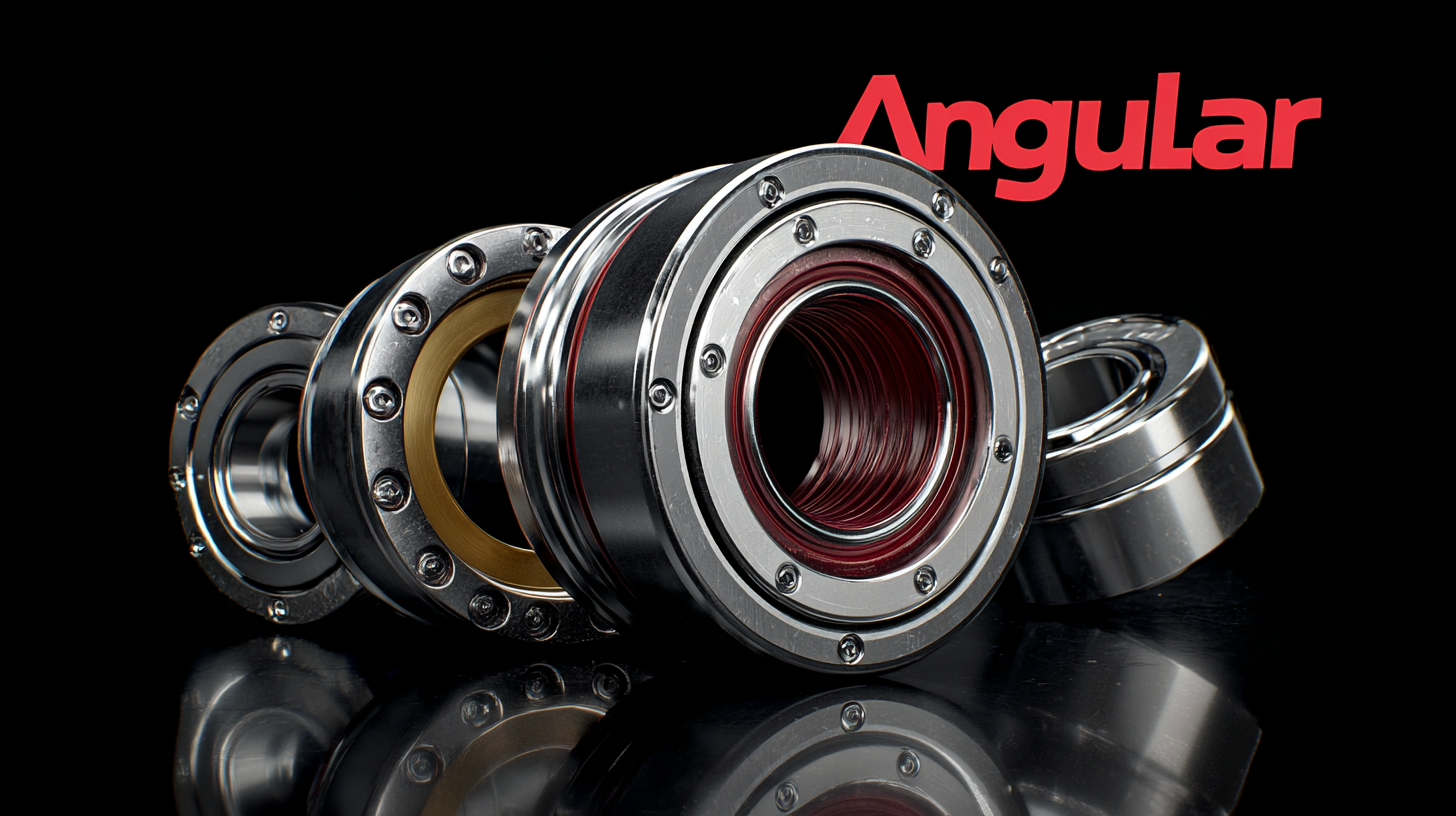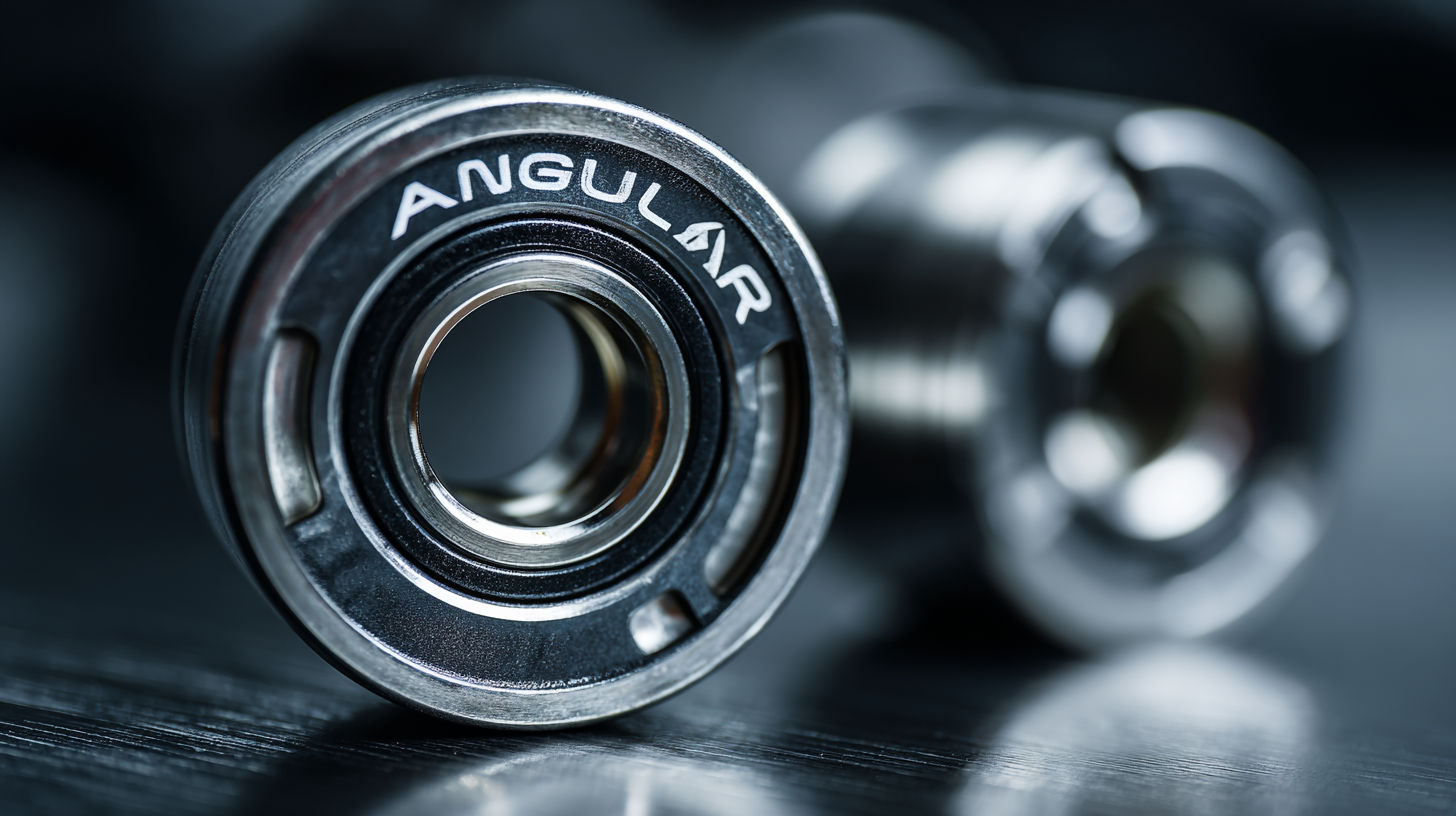The Complete Guide to Identifying Top Suppliers for the Best Angular Bearings
 In today's highly competitive manufacturing landscape, selecting the right suppliers for components like angular bearings is crucial for ensuring high performance and reliability in machinery. According to a recent industry report by MarketsandMarkets, the global bearing market is expected to reach USD 65.8 billion by 2025, with angular bearings being a significant contributor due to their essential role in various applications, from automotive to aerospace. Angular bearings provide superior load capacity and precision, making them vital for maintaining operational efficiency. However, identifying top suppliers can be challenging given the myriad of options available. This guide aims to equip you with the knowledge and strategies needed to effectively evaluate and partner with the best suppliers of angular bearings, thereby enhancing your product quality and performance in this ever-evolving market.
In today's highly competitive manufacturing landscape, selecting the right suppliers for components like angular bearings is crucial for ensuring high performance and reliability in machinery. According to a recent industry report by MarketsandMarkets, the global bearing market is expected to reach USD 65.8 billion by 2025, with angular bearings being a significant contributor due to their essential role in various applications, from automotive to aerospace. Angular bearings provide superior load capacity and precision, making them vital for maintaining operational efficiency. However, identifying top suppliers can be challenging given the myriad of options available. This guide aims to equip you with the knowledge and strategies needed to effectively evaluate and partner with the best suppliers of angular bearings, thereby enhancing your product quality and performance in this ever-evolving market.
Key Factors to Consider When Choosing Angular Bearing Suppliers
When selecting top suppliers for angular bearings, it's crucial to consider several key factors that can greatly influence the quality and performance of the bearings in your applications.
First and foremost, assess the supplier’s industry reputation and experience. A supplier with a solid track record and a long history in the bearings market is more likely to provide reliable products and superior customer service, which is essential for maintaining competitive advantage.
Another important aspect is the supplier's product range and customization capabilities. Suppliers should offer various types of angular bearings, along with the ability to customize products to meet specific application requirements. This flexibility ensures that you can find the right bearings for your needs, whether for automotive use or other industrial applications.
Furthermore, it's vital to consider the supplier's commitment to quality control and adherence to industry standards, as this directly affects the performance and durability of the bearings in challenging environments.

Evaluating Supplier Reputation and Industry Experience for Quality Assurance
When evaluating potential suppliers for angular bearings, it's essential to consider their reputation and industry experience, as these factors are crucial for ensuring quality assurance. A supplier's reputation can be gauged through customer reviews, industry certifications, and their standing within professional networks. An established supplier with a long track record often possesses the insights necessary to troubleshoot problems and innovate, providing additional value beyond just the product.
Furthermore, industry experience plays a significant role in a supplier's ability to meet your specific requirements. Suppliers who have spent years in the field typically understand the nuances of the industry, including compliance with regulations and emerging trends. This depth of knowledge allows them to offer tailored solutions that can enhance your operational efficiency. In a rapidly digitalizing world, the strategy for choosing suppliers should focus not only on their product offerings but also on their overall capability to support your long-term business goals.
The Complete Guide to Identifying Top Suppliers for the Best Angular Bearings
| Supplier Location |
Years in Business |
Industry Certifications |
Customer Satisfaction Rating |
Annual Production Capacity (Units) |
| North America |
25 |
ISO 9001, AS9100 |
4.8/5 |
500,000 |
| Europe |
30 |
ISO 14001, IATF 16949 |
4.7/5 |
1,000,000 |
| Asia |
20 |
ISO 9001 |
4.5/5 |
750,000 |
| South America |
15 |
ISO 9001, OHSAS 18001 |
4.2/5 |
300,000 |
Understanding the Importance of Certifications and Compliance in Bearing Manufacturing
In the bearing manufacturing industry, ensuring that suppliers comply with stringent certifications is paramount. According to a report by MarketsandMarkets, the global bearing market is projected to reach $93.4 billion by 2025, with a significant emphasis on quality and reliability driven by industries like automotive and aerospace. Certifications such as ISO 9001 for quality management and ISO/TS 16949 for automotive suppliers are essential indicators of a supplier's commitment to maintaining high production standards. These certifications not only demonstrate adherence to international quality norms but also help in reducing the risks associated with subpar products.
Moreover, compliance with RoHS (Restriction of Hazardous Substances) and REACH (Registration, Evaluation, Authorisation, and Restriction of Chemicals) regulations is becoming increasingly critical. A study from Research and Markets indicates that there is a growing demand for environmentally friendly practices within manufacturing processes, with around 40% of companies reporting stricter compliance requirements. This trend towards sustainability has made it imperative for suppliers to obtain relevant certifications to meet regulatory demands, enhance product appeal, and ultimately ensure customer safety and satisfaction in the highly competitive bearing market.

Comparing Pricing Strategies Among Top Angular Bearing Manufacturers
When evaluating angular bearings, one critical factor to consider is the pricing strategies employed by top manufacturers in the industry. According to a recent report by Market Research Future, the global ball bearings market is projected to reach USD 25 billion by 2027, with a significant segment attributed to angular bearings. This growth has led manufacturers to adopt various pricing models to stay competitive. For instance, while some companies like SKF and Schaeffler emphasize value-added services in their pricing, others rely on competitive pricing to attract cost-sensitive customers.
Moreover, the pricing strategies often reflect the underlying material and technology used in production. A study by Technavio indicated that manufacturers investing in advanced manufacturing technologies, such as automated assembly and higher-quality materials, typically price their angular bearings 15-20% higher than their competitors. Yet, they also report lower return rates due to superior performance and durability. Understanding these nuances in pricing can help businesses not only select top suppliers but also make informed decisions that align with their operational budgets and performance requirements.
Utilizing Customer Reviews and Testimonials to Identify the Best Suppliers
When searching for the best suppliers of angular bearings, customer reviews and testimonials can serve as valuable resources in your decision-making process. These insights provide an unfiltered glimpse into the experiences of previous clients, highlighting both the strengths and weaknesses of different suppliers. Pay close attention to recurring themes in reviews, such as product quality, customer service responsiveness, and delivery timelines.
Tips for utilizing reviews effectively include looking for detailed feedback rather than just star ratings. For instance, a customer who describes their experience with a supplier’s responsiveness during a crisis can provide more insight than a simple five-star review. Additionally, consider the context of testimonials; suppliers with a broad range of satisfied customers across various industries might indicate reliability and adaptability to diverse needs.
Engage with online communities and forums where industry professionals share their experiences. This real-time exchange of information often reveals lesser-known suppliers with exceptional service and products. By harnessing the power of customer insights, you can confidently select a supplier who meets your specific requirements for angular bearings.
The Complete Guide to Identifying Top Suppliers for the Best Angular Bearings
This chart illustrates the average customer satisfaction ratings of various angular bearing suppliers based on customer reviews. The scores indicate how well each supplier meets quality, delivery time, and customer service expectations.

Home
Products
Industrial Bearings
Deep Groove Ball Bearings
Self-Aligning Ball Bearings
Angular Contact Ball Bearings
Cylindrical Roller Bearings
Taper Roller Bearings
Spherical Roller Bearings
Bearing housing or Accessories
Miniature Bearing
Thrust ball bearing
Radial Spherical Plain Bearing
Pillow Block Bearing
Needle Roller Bearings
Automotive Bearings
Agricultural Bearings
Special Material Bearings
Industry Application
About Us
News
Contact Us



 In today's highly competitive manufacturing landscape, selecting the right suppliers for components like angular bearings is crucial for ensuring high performance and reliability in machinery. According to a recent industry report by MarketsandMarkets, the global bearing market is expected to reach USD 65.8 billion by 2025, with angular bearings being a significant contributor due to their essential role in various applications, from automotive to aerospace.
In today's highly competitive manufacturing landscape, selecting the right suppliers for components like angular bearings is crucial for ensuring high performance and reliability in machinery. According to a recent industry report by MarketsandMarkets, the global bearing market is expected to reach USD 65.8 billion by 2025, with angular bearings being a significant contributor due to their essential role in various applications, from automotive to aerospace. 
